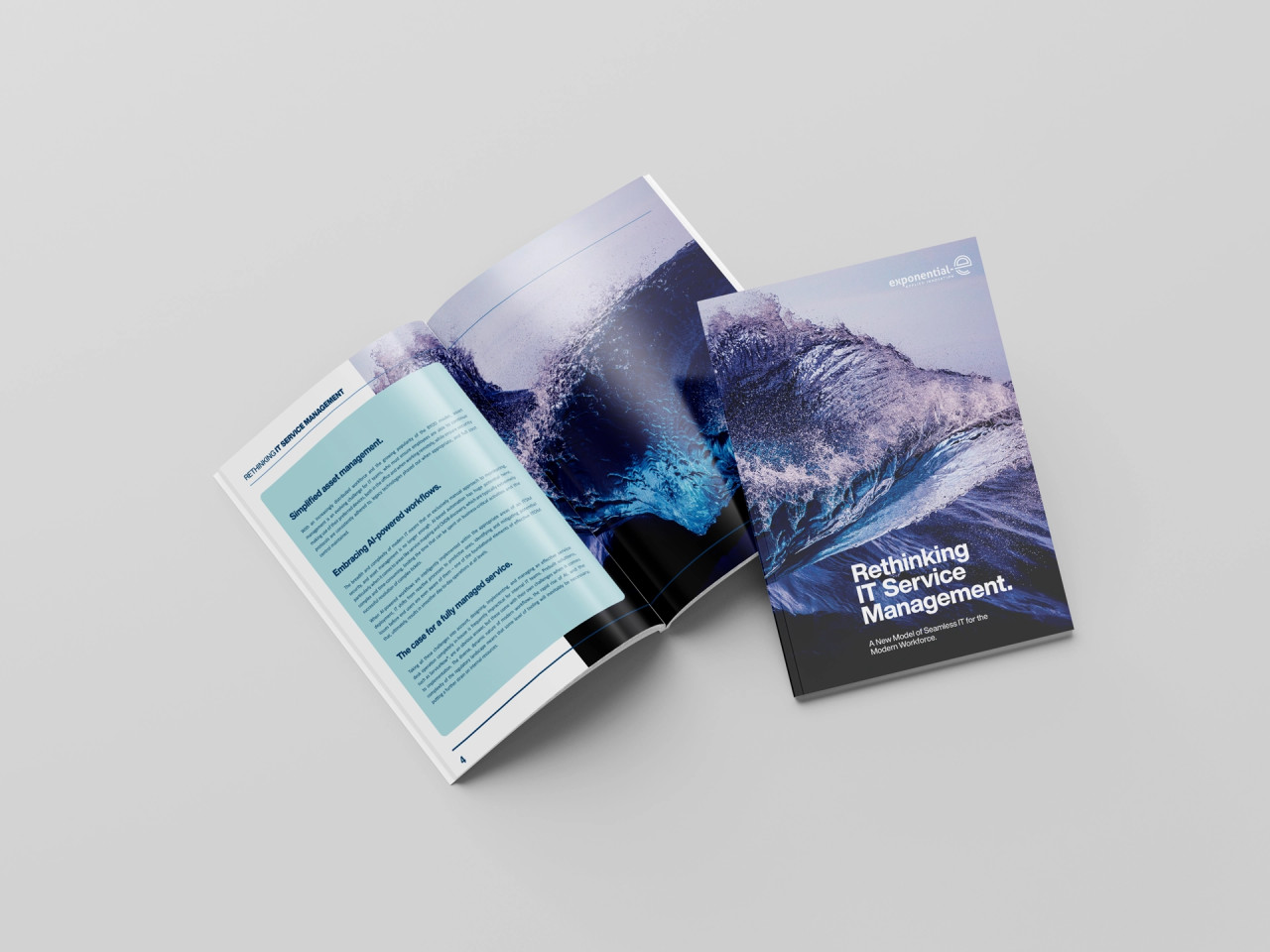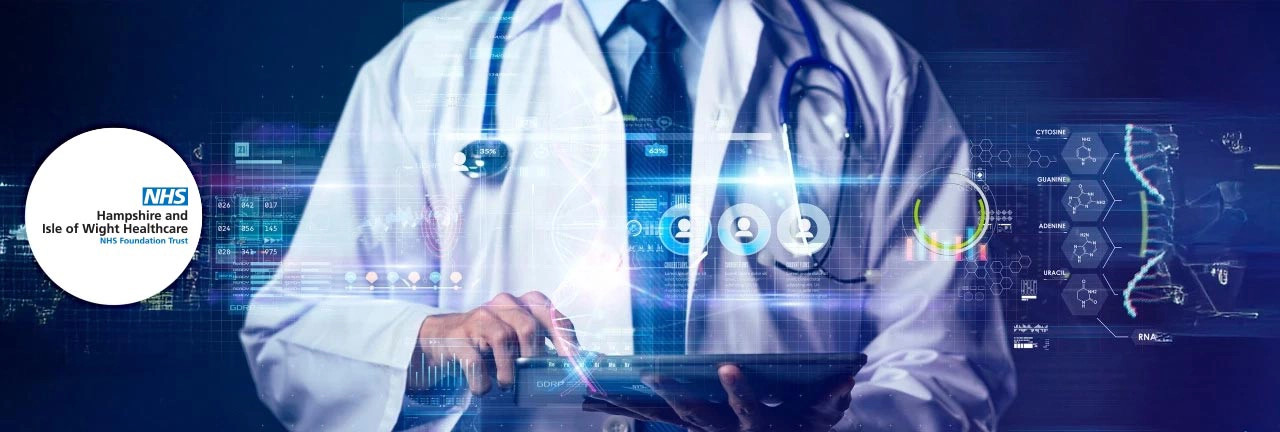For organisations of any size, across any sector, seamless IT isn't a 'nice to have'; it's an essential part of efficient, secure operations and - in turn - sustainable business growth. In other words, establishing the right approach to service management is critical, so tickets are always assigned to the right resolver, and any issues can be resolved as quickly as possible. But as organisations scale up and their IT ecosystems naturally become more complex, with the requirements of multiple teams needing to be factored in, this often becomes easier said than done.
The natural solution is an IT Service Management (ITSM) platform, which intelligently automates multiple aspects of IT workflows - including incident, request, problem, and change management - and provides end users with a range of self-service options, including online portals and knowledge bases, typically based on the globally-recognised ITIL framework. However, for all the considerable advantages these platforms offer, their successful implementation frequently proves challenging for example:
- Designing a bespoke ITSM platform in-house is extremely complex and time-consuming, and so may not be practical for internal IT teams. As a result, as organisations scale up, they find themselves in an 'IT limbo', where a simple spreadsheet is no longer fit for purpose, but a full-scale ITSM deployment will not be achievable
- Most off-the-shelf ITSM platforms only offer limited scope for tooling, which can be a problem when highly specific compliance obligations must be adhered to
- If an organisation wishes to maintain its own, in-house resolvers (i.e. their internal IT team), relying on a third-party for ITSM services may prove problematic, as the provider may not wish to provide full access to their own system, as opposed to user access
Based on these challenges, it seems like what's needed is a solution to bridge the gap, allowing smaller IT operations to access the benefits of ITSM without the cost and complexity of a fully bespoke deployment. While this has been largely considered impossible for a number of years, our ongoing conversations with organisations already utilising our evolving portfolio of Managed IT solutions, we realised there had to be another way…
This was the impetus for our ITSM as-a-Service platform, which combines the industry-leading ServiceNow® platform with leading-edge domain separation technology within our own MSP environment. This makes all the benefits of robust ITIL capabilities readily accessible to IT environments of all sizes via proven, standardised approaches that take away the traditional complexity while still maintaining enough flexibility to accommodate most established workflows.
For example, if an organisation wishes to maintain its own resolvers, as in the example above, we are able to offer a fully separated instance to enable this, with tickets automatically distributed back to the designated agent.
We are able to take this further for organisations who predominantly work with third-party providers, seamlessly integrating our platform with the wider IT ecosystem without putting the integrity of critical data at risk. Tailored instances for specific tasks can also be implemented, if required.
In this way, we empower our customers to take their Managed IT ecosystems to the next level, with ITSM as-a-Service providing the tools to achieve greater control and visibility of their IT workflows, with ample room to scale and pivot as their requirements evolve.
The full range of benefits offered by this new model are already revealing themselves, with one NHS organisation's revamped service desk having achieved...
- 75% of IT tickets resolved at the first point of contact
- More than 5,000 gold ratings from end users
- An NPS raised from 57% to 90%
… but this is all part of a longer journey, where we reconsider IT's wider role across organisations, shifting perception of it from an ongoing financial burden to a powerful driver of business growth and innovation. However you wish to develop your IT workflows in response to your organisations' evolving requirements, get in touch today and take the first step towards making this a reality.
In just a few short years, the way we work has changed forever, with employees at all levels now working at home, in the office, and on the move, communicating and collaborating with customers and colleagues in ways that would have previously been inconceivable. However, as we have seen in recent months, with numerous high-profile cyber-attacks on corporate infrastructure, we can never allow ourselves to become complacent when it comes to the security of critical data. In other words, while we should certainly be ready to explore new models of working, the opportunities on offer must not blind us to potential cyber risks.
Let's consider, for example, the now ubiquitous Bring Your Own Device (BYOD) model…
The BYOD model simply means employees are allowed to utilise whichever devices they like for work purposes, utilising them to connect to corporate networks in and out of the office. While this concept has existed for some years now, the COVID-19 pandemic and the resulting lockdowns saw numerous organisations rush to implement the concept at scale, ensuring their employees could transition to remote working with minimal disruption.
While this was largely successful in terms of maintaining BAU as much as possible, in the years since lockdown, many organisations have found that these hastily implemented policies have introduced a number of challenges – some obvious, some less so – for internal IT teams.
These include:
- Allowing employees the freedom to use their
preferred devices without compromising the integrity of corporate
infrastructure
- Ensuring users' personal data is not inadvertently put at risk
- Maintaining full compliance with an evolving range of data protection regulations
- Ensuring a diverse range of devices and operating systems all receive the latest security updates as soon as they become available
- Ensuring corporate security policies are consistently enforced every time employees connect to the corporate network, without this requiring an impractical level of manual effort
All IT teams will already have systems and processes in place for asset management, ensuring corporate devices are kept secure throughout their lifespans and that users are equipped with whatever they need to best fulfil their roles. However, when employees are free to connect through whatever devices they like, control and visibility become increasingly difficult to maintain.
IT Service Management (ITSM) platforms must therefore evolve, providing IT teams with the tools they need to accommodate BYOD and other new ways of working without requiring the inherent cost and complexity of building a bespoke solution in-house.
We explore these challenges in our latest report, Rethinking IT Service Management: A New Model of Seamless IT for the Modern Workforce, in which our IT experts posit a new approach that allows for a truly holistic view of all workflows while still providing employees with the flexibility to which they have become accustomed.
The regulatory landscape is more complex than ever, with organisations across the public and private sectors having to meet an increasingly stringent range of obligations across all aspects of their services, including their IT ecosystems. Far from a box-ticking exercise, this is an essential part of strengthening business' overall security and resilience in the face of numerous aggressive, highly sophisticated cyberattacks. Indeed, as we closed out the first half of 2025, 67% of medium businesses and 74% of large businesses had experienced a breach or cyberattack of some description[1].
The evolution of the regulatory landscape is an appropriate response to these threats, helping minimise the risk of serious breaches affecting critical services that citizens depend on. To this end, G-Cloud bids require organisations to have IT Service Management (ITSM) tooling in place, in full compliance with the ITIL standard, without which they will be unable to bid on some of the most sought-after public sector contracts.
This presents a number of singular challenges for organisations, many of whom will not have the time, resources, or internal expertise to develop a bespoke ITSM platform in-house. However, most off-the-shelf platforms lack the flexibility required to accommodate the required tooling.
As a result, too many organisations will miss out on potentially lucrative business opportunities. But rather than treat these new compliance obligations as a burden, we should look at them as an opportunity to establish a new standard for ITSM deployments, ensuring they continue to form the foundation of seamless, secure IT that supports organisations' efficiency, innovation, and ongoing growth. This means a 'best of both worlds' scenario, where the cost efficiency and streamlined deployments of off-the-shelf solutions is combined with bespoke solutions' ability to accommodate the most rigorous compliance obligations.
This will require a whole new approach to
ITSM – one which we explore in depth in our latest report, Rethinking IT Service Management: A New Model of Seamless IT for the Modern Workforce. Inside, our own IT specialists explore the emerging challenges that successful ITSM deployments present to organisations, along with all the operational and business benefits that a world-class platform can open up. If you are in any doubt about whether your ITSM platform will remain fit for purpose in the years ahead, do not make any new investment until you have considered this information. Read the report now, and do not hesitate to get in touch if you would like to explore any aspect of your unique digital journey with our experts.
Modern ITSM is no longer optional - it's essential. The rise of remote work, tougher regulation, and growing cyber threats has exposed the limits of traditional, reactive systems. Weak workflows, lack of integration, and compliance gaps are risks that can't be ignored.
This whitepaper sets out a new framework: AI-powered automation, integrated security, and scalable architecture built for modern demands. It explains why compliance isn't a burden but a competitive necessity - especially in the public sector - and argues that expert delivery is just as important as the right tools.
Dive in if you want to future-proof your IT, protect your data, and avoid being caught out when the next crisis hits.
Transforming end user support for more than 4,000 NHS staff
About Hampshire & IoW NHS Trust NHS
Hampshire & IoW NHS Trust offers a growing range of community and mental health services across Southampton, Portsmouth, and parts of Hampshire and the Isle of Wight.
The Challenge
Having previously outsourced their end user support to the same provider for more than twelve years, Hampshire & IoW NHS Trust made the decision to revamp this entire function, considering ongoing issues around data visibility, unpredictable pricing, and lack of integration between different aspects of the service. The goal for this project would be to deliver seamless IT support services for more than 4,000 end users across Hampshire & IoW NHS Trust's full range of sites, while simultaneously reducing costs and conducting a full device refresh.
It was decided that the new support function would be divided amongst several technology partners, in order to take full advantage of their individual capabilities. Throughout the tender process, Exponential-e's deep commitment to digital transformation in healthcare and willingness to work closely with Hampshire & IoW NHS Trust's own teams to develop a tailored solution in response to the most specific requirements made them a clear stand-out. As a result, they were selected as Solent's sole technology partner for network and end user support.
Solution
The first areas of the contact went live in December 2022, after several months of close collaboration with Hampshire & IoW NHS Trust's own team to ensure a smooth transition, following the switch-off of the incumbent supplier's services in March of that year. This required a considerable amount of hands-on support, including out of hours, to ensure more than 4,000 staff were able to retain access to the Citrix VPN, avoiding any disruption to day-to-day operations.
As part of a wider hardware refresh, more than 4,000 new laptops were provisioned over the course of ten weeks, replacing much of the legacy technology that was still in use, including across several remote sites. An end user survey was conducted to help maximise adoption and ensure any opportunities for improvement could be identified and acted upon. With more than 2,000 responses, this provided Exponential-e with a rich pool of actionable data with which to design and optimise the new support operation.
Critical to the success of the new support function was the design and implementation of a robust IT Service Management platform, powered by ServiceNow®. By creating a domain separated instance within Exponential-e's managed service offering, Hampshire & IoW NHS Trust would not need to design and deploy the new ITSM platform from scratch, ensuring it would be ready to use on designated go-live date. At the same time, moving the function from CAPEX to OPEX allowed for greater cost control, while minimising the initial expenditure.
In order to meet Hampshire & IoW NHS Trust's specific requirements for their ticketing system, this solution was based on the Exponential-e's defined ITIL-aligned standards and service workflows, with an agreed scope for further customisation and hands-on support from Exponential-e's technical specialists included in the contract. The resulting platform combining the advantages of a proven, well-established solution with the highest levels of control and flexibility in terms of the final implementation and its ongoing development.
Following a successful transition to the new end user support function and the rollout of the ITSM platform, Exponential-e have continued to develop the operation in direct response to Hampshire & IoW NHS Trust's evolving requirements, ensuring business-critical issues can be resolved as quickly as possible. This has included recruiting extra service desk personnel, and implementing out-of-hours cover, while expanding the team's roaming tech hub to ensure all sites are properly supported. Time-to-resolution has been set out in robust SLAs and KPIs, with specific processes and escalations in place to manage high-impact events, and dedicated response engineers in place.
To optimise the efficiency and accessibility of service desk agents, Exponential-e designed and implemented an appointment-based system, ensuring staff who required hands-on IT support could access it as quickly as possible. This has since helped reduced walk-ins for IT-related issues from around 600 per month to less than 30.
The months of work put into establishing this foundation has since allowed Hampshire & IoW NHS Trust and Exponential-e to establish a culture of ongoing improvement, driven by direct collaboration daily, with Exponential-e now established as a trusted partner.
Every point of contact with end user support is tracked and monitored, and end users can provide real-time feedback on their experiences. This has resulted in 75% of tickets logged being resolved at the first point of contact, which, in turn, raised end user support's NPS score from 57, in the first live month of operations, to 90, with a 20% increase in users willing to offer feedback. Since then, the team has built on this success, recently hitting the milestone of more than 5,000 gold ratings.
This partnership continues to evolve, with ongoing collaboration between teams from both organisations ensuring IT can continue to play a key role in delivering world-class service quality to citizens across every region in which Hampshire & IoW NHS Trust is active.
Solution benefits
- More than 4,000 laptops setup and deployed across multiple sites
- Access to Citrix VPN delivered for more than 4,000 dispersed staff
- A highly flexible, fully integrated ITSM platform, with the industry-leading ServiceNow® solution delivered as a managed service
- Underpinned by Exponential-e's own enterprise-class network
- 75% of IT support tickets resolved at the first point of contact
- Walk-ins for IT-related issues reduced from around 600 per month to less than 30, helping reduce waiting times for support services
- 20-second pickup time regularly beaten by service desk personnel, now averaging 9 seconds wait time per call
- An increase in average monthly NPS from 57 to 90, with a 20% increase in end-user adoption
- More than 5,000 gold ratings from end users
- Network resiliency and stability to critical locations, with full integration into third-party networks, enabling cross-collaboration with partnering NHS trusts across the Integrated Care System in Hampshire and the Isle of Wight
Exponential-e's support and expertise has transformed the way IT is viewed across our organisation, with staff across all our sites making active use of the available tools and systems in every aspect of their work. The speed with which any issues have been resolved, and the team's willingness to think outside the box - particularly when it came to rolling out the new ITSM platform - have more than fulfilled our initial goals for network and end user support, with ample opportunities for further improvement.
Dawn Day, Head of Digital Delivery, Hampshire & IoW NHS Trust.
It's time for the public sector to have its own digital revolution






